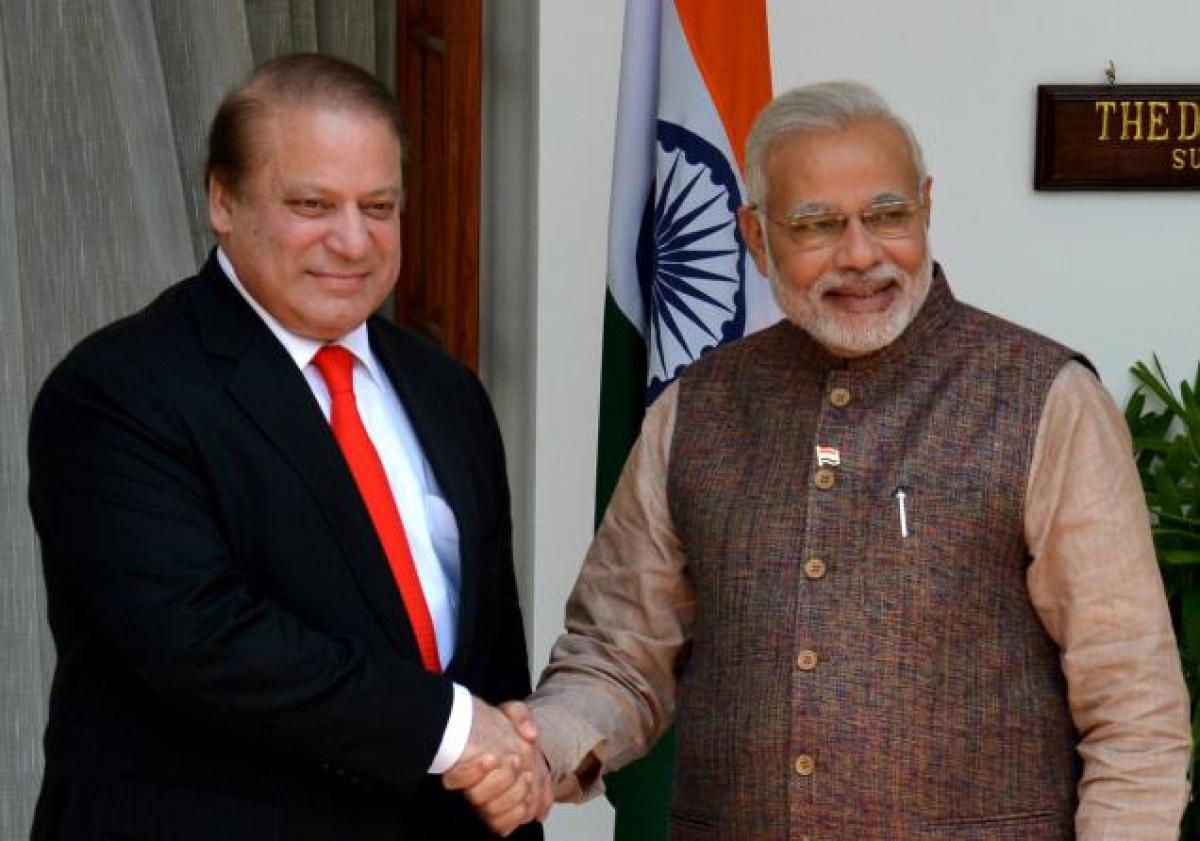Live
- NASA Tracks Five Giant Asteroids on Close Approach to Earth Today
- Pushpa 2 Hits ₹1000 Crore in 6 Days: How It Compares to Other Top Indian Films
- Vivo X200 and X200 Pro Launched in India: Price, Specifications, and Features
- Nitin Gadkari Admits Feeling Embarrassed at Global Summits Over Rising Road Accidents in India
- Comprehensive Review on Indiramma Housing Survey and Welfare Initiatives Conducted via Video Conference
- Jogulamba Temple Records Rs 1.06 Crore Hundi Revenue in 150 Days
- Opposition Slams ‘One Nation, One Election’ Bill as Anti-Democratic; BJP Allies Support the Move
- Celebrate Karthigai Maha Deepam Virtually with Sri Mandir’s LIVE Darshan Experience
- BJP Extends Support to Samagra Shiksha Abhiyan Employees' Strike, Demands Immediate Regularization and Welfare Benefits
- Dr. M. Priyanka Stresses Quality Education, Nutritious Meals, and Cleanliness in Schools
Just In

The US is playing a positive role in pushing and prodding India to lower tension and start dialogue with Pakistan, Prime Minister Nawaz Sharif\'s envoys have said.
Washington: The US is playing a "positive role in pushing and prodding India" to lower tension and start dialogue with Pakistan, Prime Minister Nawaz Sharif's envoys have said.
"We feel that the US has a positive role in pushing and prodding India to lower the temperature and start talking to Pakistan rather than talking at Pakistan," Special Kashmir Envoy of Sharif, Senator Mushahid Hussain Syed said at the conclusion of his five-day trip to the US.
"One expression of that was the phone call initiated by Ajit Doval, National Security Advisor to Prime Minister Narendra Modi and there has been a follow up phone call. The purpose of those phone calls was to diffuse tension," said Sayed, who was here with Shezra Mansab, another Kashmir Envoy.
He said Modi is "not from the Indian Delhi establishment, where you have unsmiling crusty old men who are always sulking and who are stuck in old cold war mentality, as he is an outsider.”
"I feel that there would be SAARC Summit in Islamabad. Mr Modi will come there. And he would embrace Mr Nawaz Sharif. I think, Modi would realise that this is the way forward," Syed added.
"Mr Modi has the capacity to spring a surprise. One good thing about him is that he is flexible enough to do U turns. So I expect a good U turn probably in the coming months in our relations and we might see pleasant surprise in relations with South Asia, because Mr Modi and Mr Sharif have a good rapport and I think, Mr Modi is preparing his people for this U turn.”
"Because he (Modi) realises that two important core interest of India are linked with that. Number one relationship with Pakistan and the Kashmir conflict are the biggest impediment in the rise of India. India wants to rise, they want to be on the high table, Nuclear Suppliers Group, UN Security Council. No, till you have better relationship with Pakistan," Syed said.
Syed warned that a war with Pakistan would push back Indian economy by 10 years, which he said Modi does not want. "He (Modi) cannot afford. This raising of tension would be devastating, debilitating and damaging for India. We do not want to respond to war rhetoric (coming from India) by war rhetoric. We are not responding to India in its tone. We still want peace," Mansab said.
"I think, we have stirred up Washington. I think that was the purpose that look here it is a popular, indigenous and widespread uprising (in Kashmir). Pakistan has nothing to do with it. India is trying to put the pressure and raise the temperature which is detrimental to the peace, security and stability in South Asia, because it is a nuclear flash point. We do not want that. No red line should be crossed.”
"Thirdly we said peace cannot be compartmentalised. Peace is indivisible - Kashmir or whether it is Kabul. I think at the end of the day, message has been heard loud and clear," Syed said, adding that they discern a change in the tone of the US administration.
They have a recognition that Pakistan has legitimate grievances on issues like the Indus Water Treaty or some of the irresponsible remakes that unfortunately emanated regarding the issue of Balochistan and Gilgistan, he said.
Yesterday, the two Envoys met Peter Lavoy, Special Assistant to US President Barack Obama. The White House refused to issue any readout of the meeting.
Syed described their five-day Washington stay as "media, diplomatic and a public relations blitz" during which they had 12 major public events from think-tanks, to government officials, media and interaction with the Kashmiri diaspora.
Pakistan-US relationship, he said are in transition. "We feel that the Obama administration failed to figure out our region. They were quite clueless about Pakistan policy, Afghanistan policy. They are confused also.”
"The US needs Pakistan for stability in the region, for counter-terrorism, for nuclear non-proliferation and for regional economic cooperation, in what we call greater South Asia," Syed, a former journalist, said.
He said the new US administration would be different from that of the Obama administration, "which hopefully would be more balanced, strategic, sustained and consistent policy".
The two Envoys have submitted a dossier on alleged human rights violations in Kashmir. "We have been assured by the United States administration that dossier would find resonance on the upcoming report on human rights on India," Syed said, adding that the US has assured Pakistan that it would push and prod Modi on Kashmir.
"We are waiting for a U turn from Modi on that. I think the U turn would be a positive U turn. The first signs of that would be moving towards normalisation of relationship and reducing tension between the two countries," Syed added.

© 2024 Hyderabad Media House Limited/The Hans India. All rights reserved. Powered by hocalwire.com







